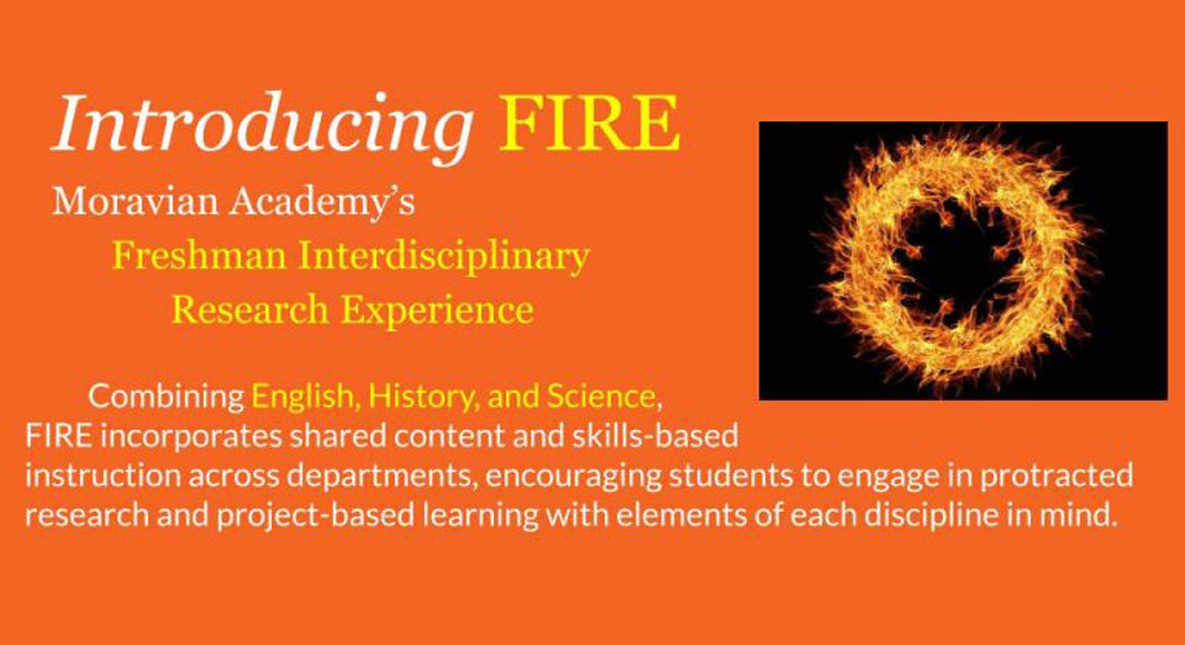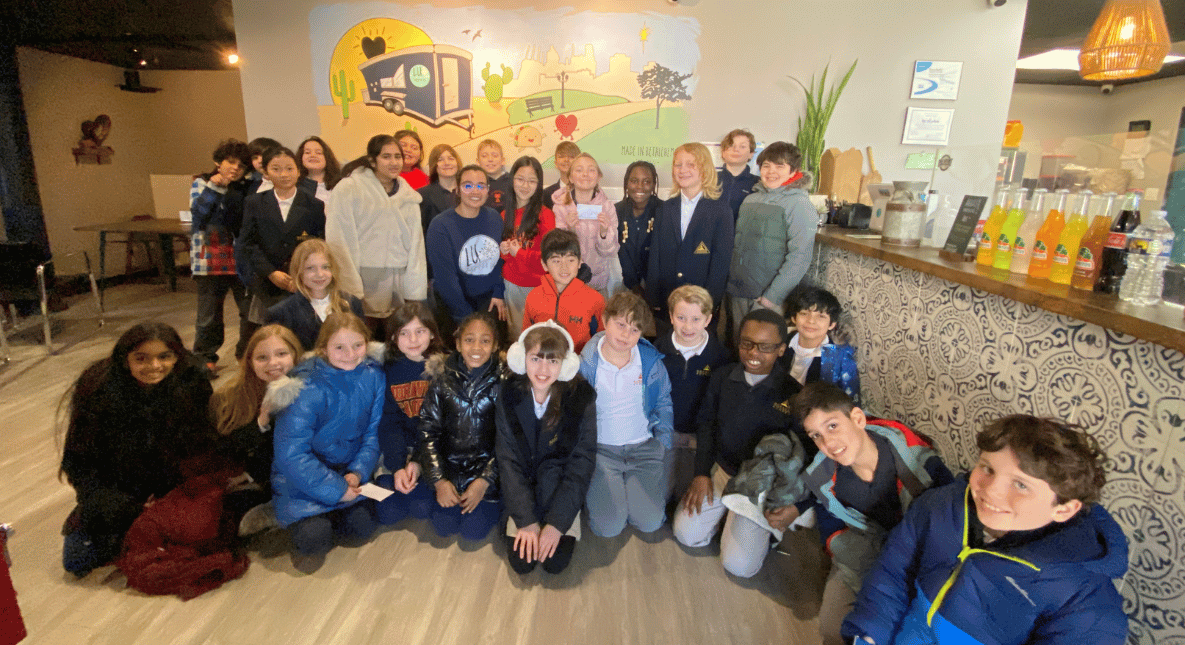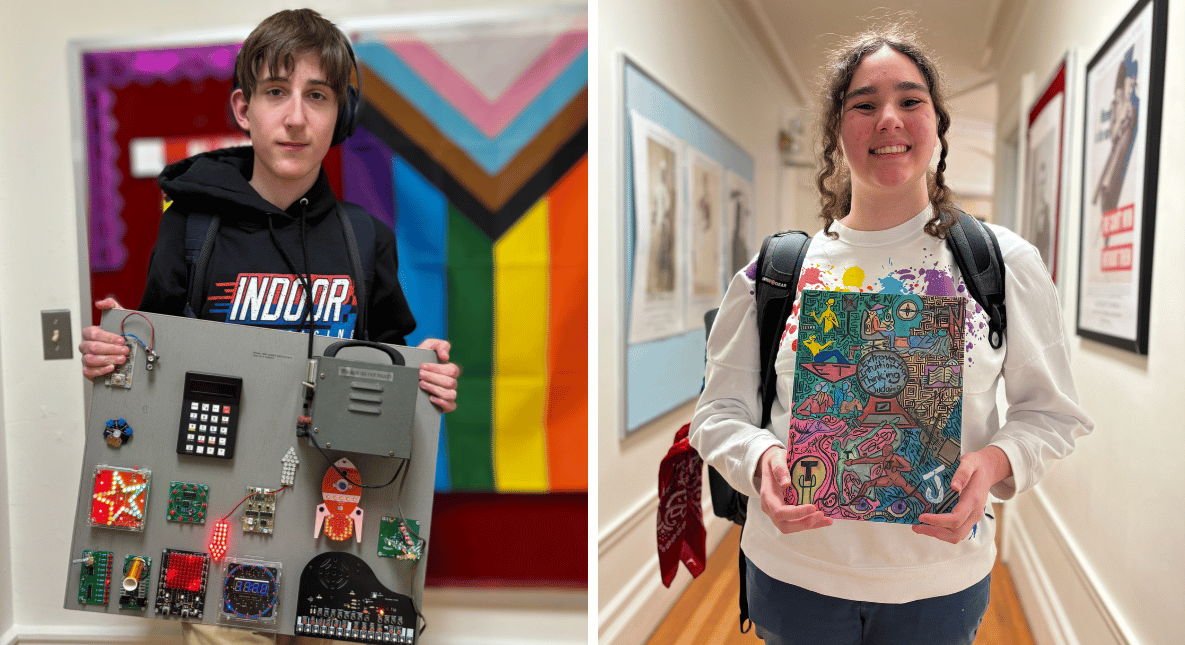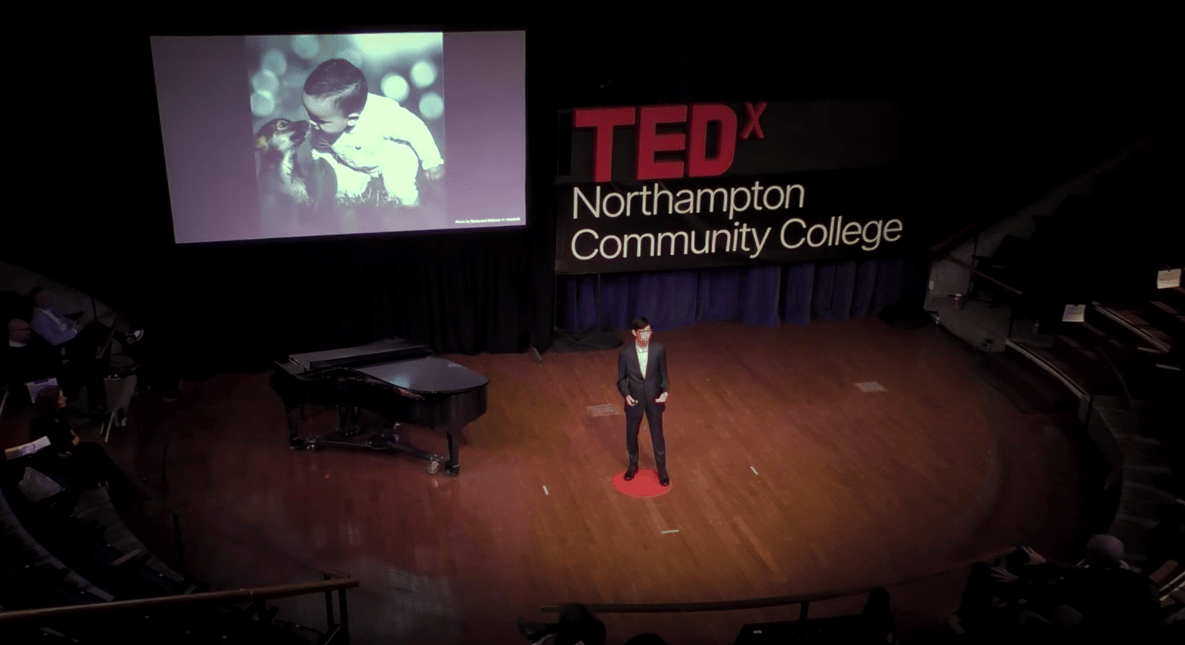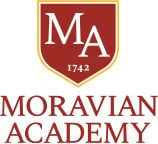FIRE Summer-Reading Discussions
On Monday, September 16th, during Community Time (10:15-11:00 a.m.), the entire freshman class engaged in small-group discussions--facilitated by select Moravian Upper School faculty--focusing on various summer-reading texts.
This activity was the first foray for the Class of 2023 into the Freshman Interdisciplinary Research Experience (aka FIRE), a personal-learning program which incorporates shared content and skills-based instruction across departments, encouraging students to engage in critical inquiry, protracted research, and project-based learning.
Over the summer, incoming freshmen had to choose three titles from carefully selected lists of fiction and nonfiction books. Popular novels this year included Paolo Coehlo’s The Alchemist, Julia Alvarez’s How the García Girls Lost Their Accents, and M.T. Anderson’s Feed. Several nonfiction selections–especially Yuval Noah Harari’s Sapiens and Trevor Noah’s Born a Crime–also attracted students’ attention this year. Earlier this month, students were assigned to small discussion groups ranging from 3-14 students based on their particular summer-reading selections.
Before meeting in groups, students watched Bina Venkataraman’s TED Talk, “The Power to Think Ahead in a Reckless Age,” which offers several insights about how to improve skills of communication and critical thinking, key goals of the emerging FIRE program. The video serves as a useful touchstone for holding fruitful discussions and helping all participants engage in higher-level inquiries. Students attempted to use Venkataraman’s key insights–reemphasized in the questions below–to guide discussions about their shared summer-reading experiences:
- How should we measure what really matters about the book(s) we read and subjects we study?
- How do/should we reward one another for using the knowledge gained from our reading/study?
- How could/should we imagine a world beyond what’s presented in the text(s) or in school?
After discussing how the above questions related to their shared text(s), students worked to compose more specific critical questions that may serve as the bases for independent research projects during freshman year (or beyond). These questions varied in complexity and scope, but several key themes emerged from the process: clearly, many students share interests in issues relating to climate change, social justice, and personal health. Specific examples of student-produced questions include:
- How can we more effectively spread awareness about problems (like climate change, etc.) while avoiding problems of (mis)interpretation and eco-anxiety?
- What would a world of zero-carbon emissions look like? What sacrifices would such a world demand?
- How does the ever-increasing use of technologies like smartphones impact human beings’ emotional well-being?
- How have shifts in culture and lifestyle contributed to mental health issues?
- What effects can community service opportunities and mission trips have upon an educational community?
All questions have been recorded and will be explored further as the year progresses. Ideally, independent research questions for FIRE should have interdisciplinary elements, meaning that more than one field of inquiry, such as English, History, and/or Biology, among others, should be required to answer them successfully. Students should feel encouraged throughout the year to make connections across classes and to see themselves as active learners even beyond the confines of Moravian.
This year, the FIRE program will also coordinate with the Lillie S. Turman Mentorship Program, named for former Moravian Seminary for Girls Headmistress Lillie S. Turman, who had a special talent for seeing each young lady’s potential. The shared goals of these programs include helping our students build relationships within the wider Moravian community that can offer support, advice, friendship, reinforcement and constructive role-modeling, in the same way Miss Turman mentored her students so many years ago. Please visit www.moravianconnect.com for more information
The Upper School FIRE faculty very much look forward to engaging with students on their personal-learning endeavors and working together to achieve their goals as young researchers! Feel free to reach out to Dr. Crowe (bcrowe@mamail.net) with any questions about FIRE.


 myMA
myMA

